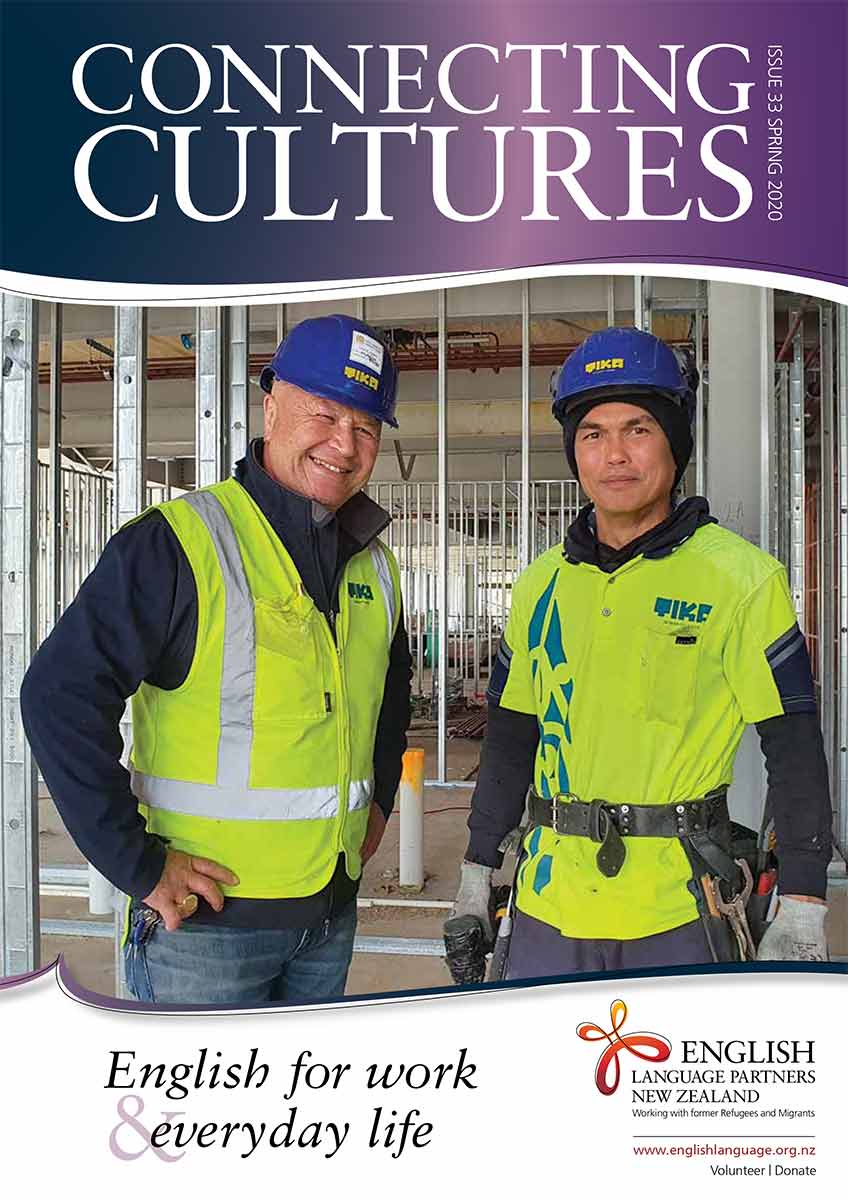Your training
Before you are matched with a learner you will complete the NZQA-approved Certificate in ESOL Home Tutoring (unless you already have relevant teaching experience).
This is our foundational programme and where English Language Partners started in the 1970s. You can be confident that this course will help you understand the concepts of learning and teaching, give you guidance on your role, and develop your confidence and skill in tutoring.
Certificate in ESOL Home Tutoring
To prepare you as an ESOL home tutor the course is very practical and hands-on. You will learn how to assess a learner’s needs, how to plan a lesson, where to find resources and how to use them, as well as how to approach tutoring in reading, writing, listening, and speaking.
The course will take 60 hours of part-time study in a mix of face-to-face learning and self-directed study. This includes the training course, teaching practice, and assessments.
The timing and format of face-to-face learning can vary depending on your local centre. Check the upcoming training dates in your area and contact your local centre if you have questions.
By the end of the course, you will:
Demonstrate an understanding of the context of volunteer home tutoring.
Have a better understanding of the background and needs of learners.
Develop cross-cultural awareness.
Demonstrate knowledge of current teaching approaches to language learning for adults.
Know how to prepare and deliver appropriate learning sessions.
Be able to evaluate learning sessions and report on learner progress.
Requirements for passing the course are:
Attend at least 80% of the training course.
Complete all assignments (meeting the performance criteria).
Complete a 12-session tutoring ‘match’ with an adult English language learner.
Fast-track process for qualified and/or experienced teachers
If you already have a relevant teaching qualification and/or experience, you may be able to fast-track your training and complete only 20% of the training instead of the full course. We are short of volunteers and encourage anyone who is eligible for the fast track to contact your local centre.
To qualify for the fast-track you will hold a recognised English Language teaching qualification and have experience teaching adults.
A list of qualifications we recognise
If you have one of the following qualifications, we can fast track your application to become a tutor:
CELTA (Certificate in English Language Teaching to Adults, Cambridge ESOL, UK, formerly called RSA/CTEFLA)
CertTESOL (Trinity Certificate in TESOL, London)
Grad Cert TEAL (Graduate Certificate in Teaching English as an Additional Language – Massey University)
Grad Cert in TESOL(Graduate Certificate in Teaching English to Speakers of Other Languages, Wintec, Waikato)
GCertTESOL (Grad Certificate in Teaching English to Speakers of Other Languages at ELI, Victoria University Wellington)
AIS CertTESOL (Certificate in Teaching English to Speakers of Other Languages at AIS, Auckland Institute of Studies)
If your qualification is not on this list talk to your local centre. We maybe able to fast track your application if your qualification is externally validated and moderated by a reputable examination body, includes a minimum of 6 hours supervised, assessed, and moderated teaching practice and at least 100 hours of TESOL input.















